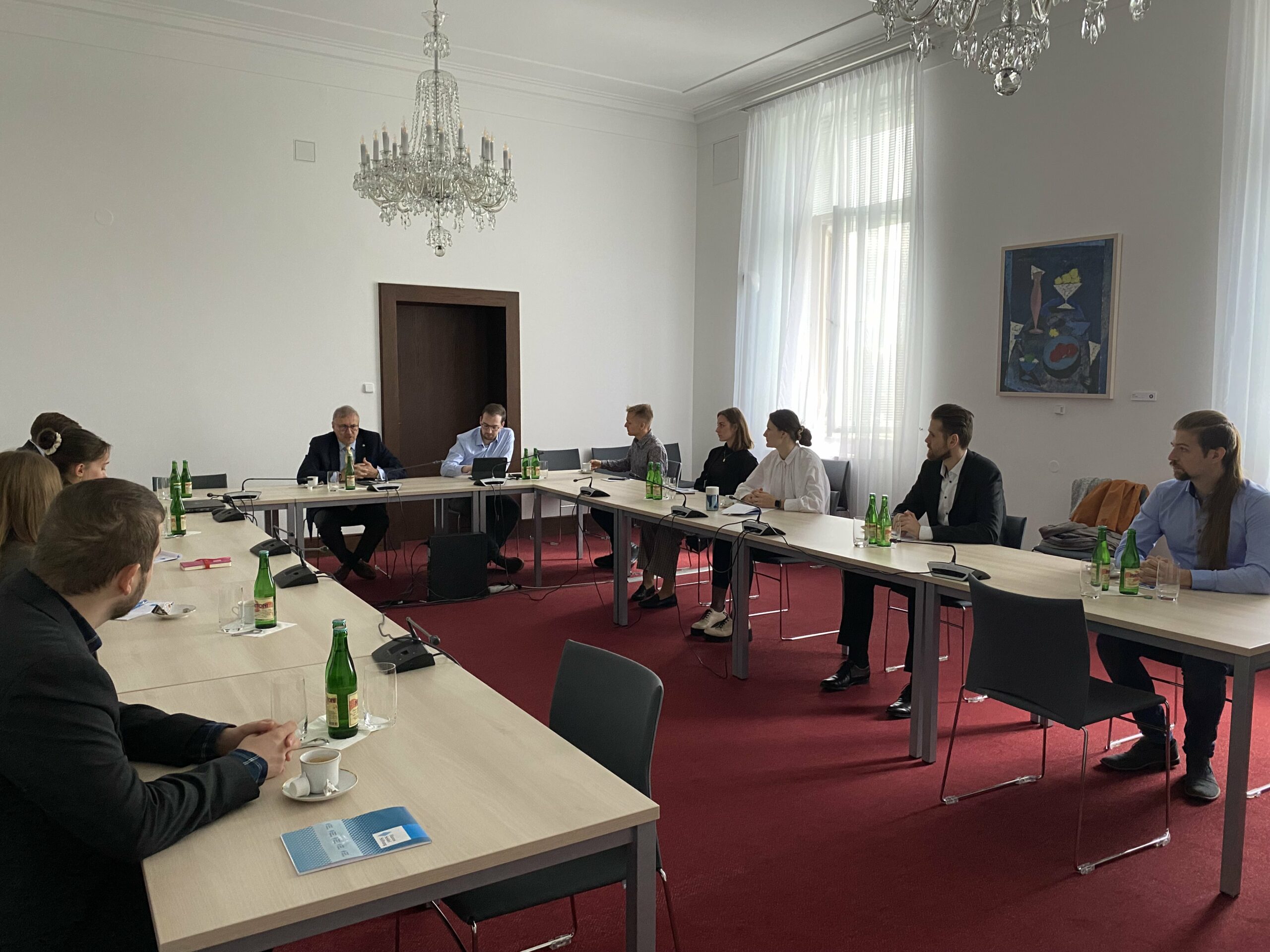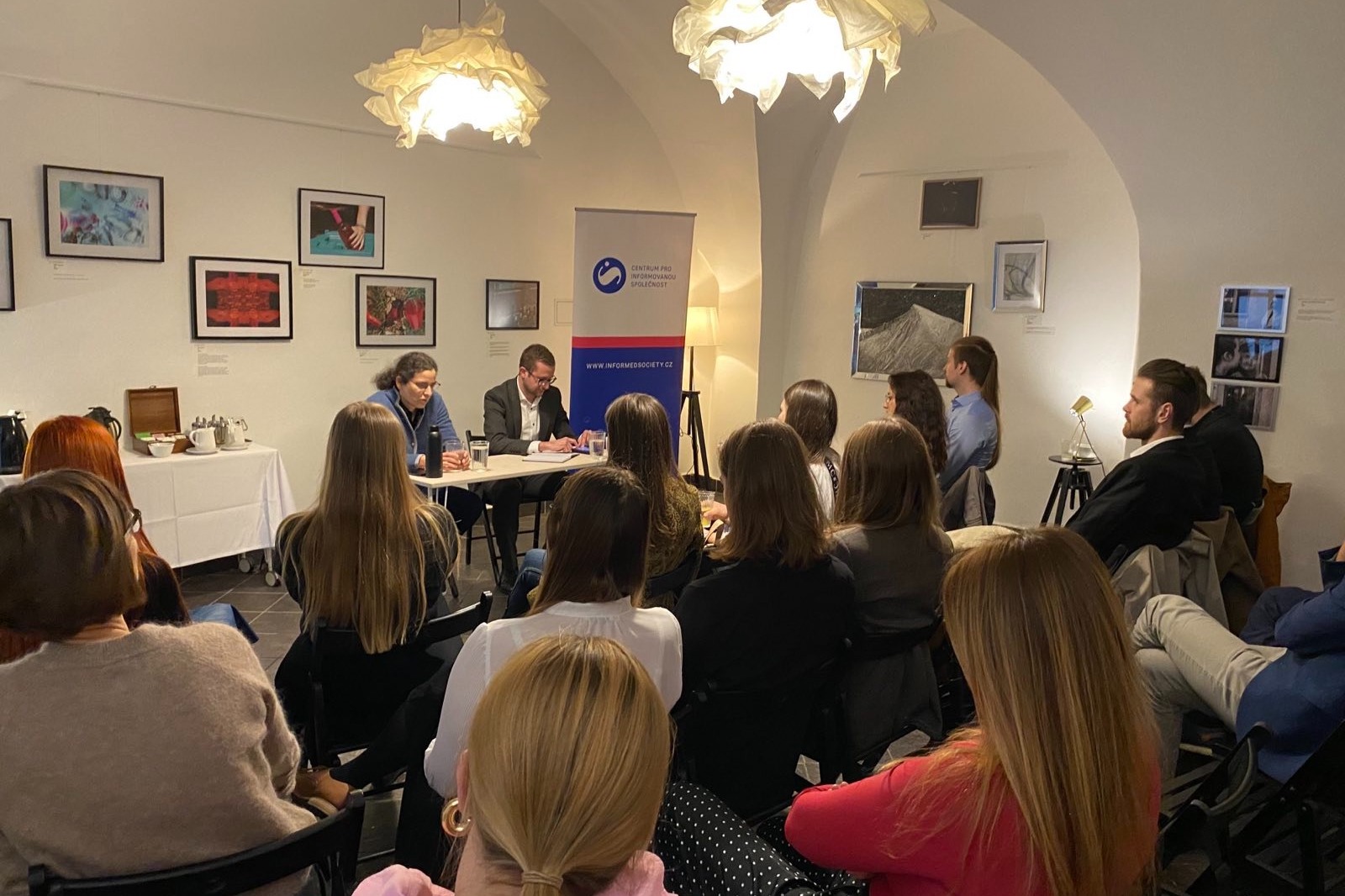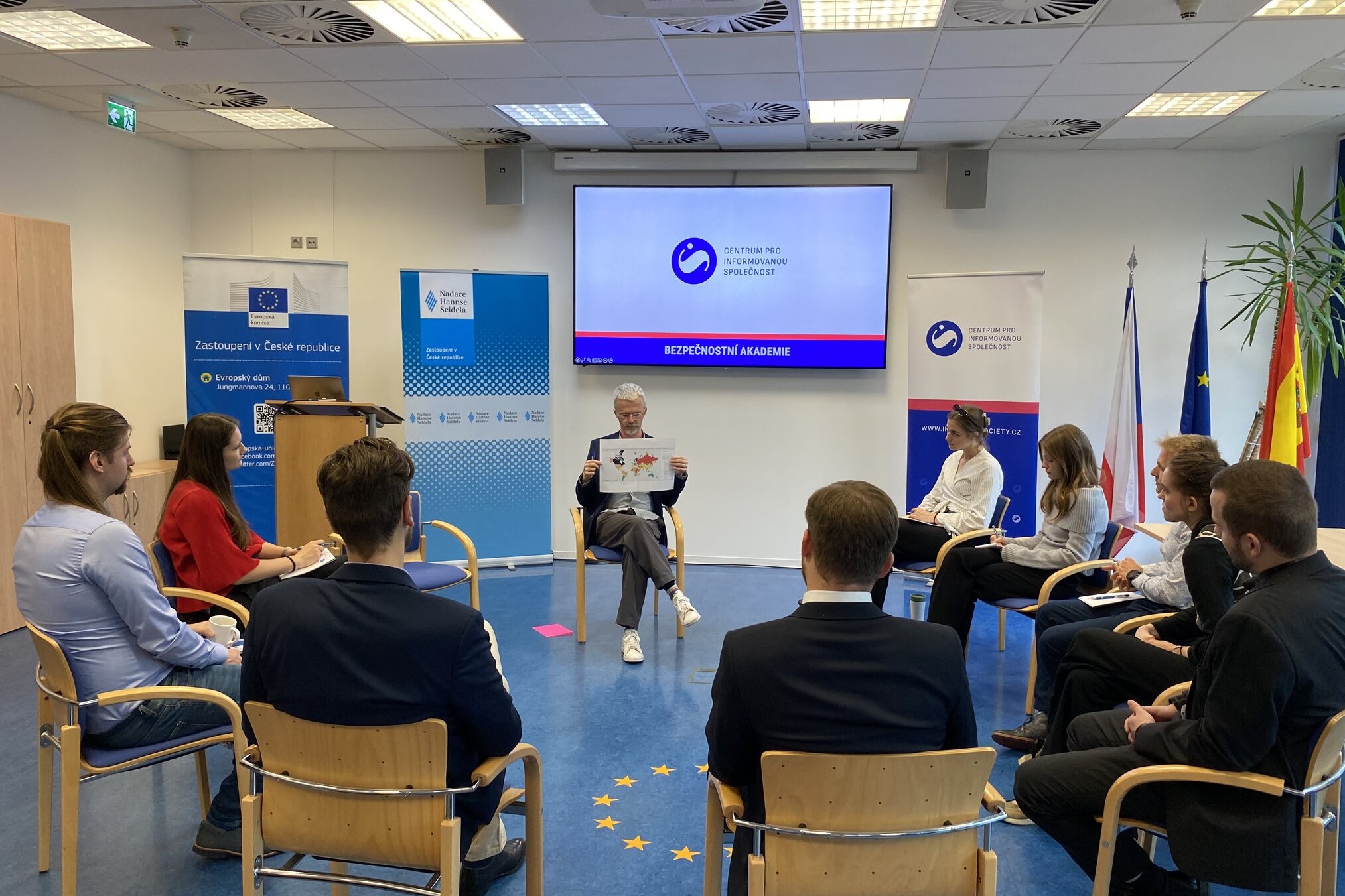From October 25 to 27 we successfully launched the 4th year of the Security Academy training programme for university students and recent graduates. During the three-day program, this year's participants engaged in discussions on various security topics and met with leading actors in Czech security and foreign policy. Participants of the opening seminar particularly appreciated the diverse focus of its guests.
The first day started with a discussion at the headquarters of the Representation of the European Commission in the Czech Republic with Pavol Kukučka on the topic of European security and the current threats the EU faces both from outside and from within. The discussion also focused on the current elections in Slovakia and Poland and their significance for Central Europe, but also on disinformation, which represents a strong security threat (not only) to the EU.
On the second day, we were welcomed at the Office of the Government of the Czech Republic by Minister Martin Dvořák, who reflected with the participants on deeper topics such as current events in Israel, the significance of the year '89, as well as issues related to the Western Balkan countries and their efforts to integrate into transatlantic structures. The discussion with Martin Dvořák offered participants a professional and unique perspective thanks to the personal experience of the current Minister for European Affairs, who has worked professionally in the Balkans and the Middle East, while a significant part of the conversation also focused on Qatar's increasingly important role in the Middle East region. At the same time, however, the interview also provided a somewhat less obvious perspective from the government's position on foreign security issues, in the context of a four-year mandate and the need to address domestic political issues at a time of ongoing wars, particularly in Ukraine and the Middle East.

The discussion then continued at the Ministry of the Interior, where we met Jan Paďourek, the Chief Director of the Internal Security and Police Education Section. He discussed his career in security institutions as well as the broad remit of his section within the Ministry and the current challenges for internal security in the Czech Republic. Participants were also interested in how, for example, the issue of artificial intelligence and its impact on security is being addressed. The afternoon was rounded off by a discussion with Irena Kalhousová, Director of the Herzl Centre for Israel Studies at the UK, to which graduates of previous years of the Security Academy were invited, as well as participants in the Centre for an Informed Society's parliamentary assistants programme. The topic of the discussion was very topical - the current events in the Middle East, or the new stage of the Israeli-Palestinian conflict. Over the course of an hour and a half, we touched on a range of topics, whether it was the broader implications of the current conflict on the security complex of the entire region, or the motivations of individual actors.

On Friday, the programme ended with a visit to the editorial office of the weekly Respekt, where the participants of this year's edition could learn more about the work of investigative and foreign reporters thanks to an interview with Deputy Editor Ondřej KundraThanks to his experience as a journalist, he shared his own experiences of covering events in Ukraine and the lesser-known topics that the war conflict brings with it. The discussion focused, for example, on the impact on the mental health of soldiers, but also on the question of how to keep the important topic of the war in Ukraine relevant to a wider audience. An unforgettable part of the debate was also devoted to the importance of verifying sources or the importance of the work of journalists and the associated security risks.
The patronage of this year's event was taken over by Vít Rakušan, 1st Deputy Prime Minister and Minister of the Interior, Martin Dvořák, Minister of European Affairs, Lt. Gen. Karel Rehka, Chief of the General Staff of the Army of the Czech Republic and the National Office for Cyber and Information Security.
We would like to thank Pale Fire Capital, Hanns-Seidel Stiftung and the Representation of the European Commission in the Czech Republic for their support of the Security Academy.
Further details about the Security Academy can be found on our website.
Lucia Macháčková and Michael Murad

